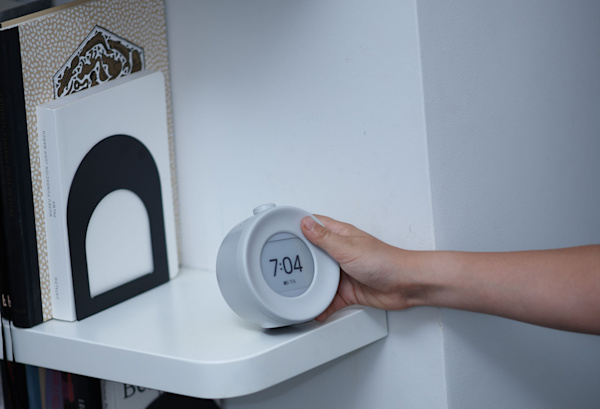
Biohack your Sleep: Simple Steps to Improve Sleep Quality
These days, it’s easy to see that we live in a world which increasingly demands round-the-clock connectivity and constant productivity- hustle culture, anyone? It’s almost like we've been conditioned to view sleep as a luxury, or worse, an obstacle to success. How many times have you heard someone say, “I'll sleep when I'm dead?"
However, science continues to show that sleep is more than just rest, it's a vital component of our overall health, impacting everything from cognitive function to immune strength.
Poor sleep has been linked to various health issues, including weight gain, weakened immunity, and heightened stress levels.
Understanding Sleep As The Foundation of Health
Sleep is a complex biological process that serves as the body’s primary method of both physical and mental restoration. It's when our bodies repair tissues, regulate blood sugar, maintain healthy weight, and solidify memories.
It’s also when our brain processes emotions and prepares us for the challenges of the next day. Hormones like melatonin, often referred to as the 'sleep hormone,' and cortisol, the stress hormone, play crucial roles in regulating our sleep-wake cycles.
Unfortunately, modern life can disrupt this delicate hormonal balance, making quality sleep more elusive than ever.
However, with some simple steps and biohacking techniques, you can enhance your sleep quality and enjoy better health and well-being.
Step 1: Align with Your Circadian Rhythm
Your circadian rhythm is your body's internal clock, telling you when to be awake and when to sleep. Keeping a consistent sleep schedule, which means going to bed and waking up at the same time every day, even on weekends, can help regulate this rhythm.
To strengthen your circadian rhythm, prioritize exposure to natural light during the day, particularly in the morning. Sunlight helps your body produce serotonin, a precursor to melatonin, which is vital for sleep regulation.
FUN FACT: Did you know, our body needs serotonin to produce melatonin. Here’s how that works: Your pineal gland (located deep in your brain in an area called the epithalamus) chemically alters one hormone to create the other. That’s why exposure to natural light during the day boosts the production of melatonin, the hormone responsible for regulating our sleep-wake cycle. This increase in melatonin not only helps us fall asleep more easily, but also improves the overall quality of our rest.
At night, it’s important to minimize exposure to blue light from screens and artificial sources, as this can inhibit melatonin production. This is where Mudita's philosophy comes into play: embracing mindful technology that supports, rather than disrupts, healthy sleep hygiene. Mudita's products, such as our mindful alarm clocks, Mudita Bell and Mudita Harmony, are designed to allow you to fall asleep naturally, without the harsh blue light, and wake you up naturally, using soft, calming sounds that are less likely to jolt you out of sleep.
These devices align with your body’s natural rhythms, promoting a smoother transition from sleep to wakefulness.
Step 2: Create a Sleep-Friendly Environment
A conducive sleep environment is key to improving sleep quality. Your bedroom should be a sanctuary for rest, free from distractions. Keeping your room cool (ideally between 60–67 degrees Fahrenheit), dark, and quiet can create the perfect conditions for restorative sleep.
Consider investing in high-quality mattresses and pillows to support your body properly throughout the night. If you’re a light sleeper and loud sounds are an issue, consider using earplugs or a device which is capable of playing different colors of noise, like Mudita Harmony, to mask the unwanted sounds. Additionally, mindful alarm clocks, like Mudita Harmony, also double as ambient light sources that gradually brighten to simulate a natural sunrise, signaling to your body that it's time to wake up gently, without disrupting your sleep cycle.
Step 3: Adjust Your Diet for Better Sleep
What you eat and drink significantly impacts how well you sleep. Foods rich in magnesium (such as almonds and spinach) and potassium (like bananas) can relax muscles and nerves, promoting deeper sleep. Avoid large meals, caffeine, and nicotine close to bedtime, as these can disrupt your sleep.
Practice mindful eating habits by eating earlier in the evening and consider intermittent fasting. Aligning food intake with your body's natural circadian rhythm can enhance sleep quality. Pairing these dietary changes with a device like the Mudita Harmony, which features soothing, natural sounds to help you unwind and prepare for sleep, can further enhance your sleep experience.
Step 4: Incorporate Relaxing Pre-Sleep Rituals
Establishing an offline bedtime routine signals to your body that it's time to wind down. Activities like reading a book, taking a warm bath, or practicing mindfulness techniques such as meditation or deep breathing can help you transition from a busy day to a restful night.
Using Mudita Harmony's built-in meditation timer can facilitate these practices, allowing you to end your day with a sense of calm and tranquility.
Step 5: Embrace Physical Activity — But Time It Right
Regular physical activity can promote better sleep, as exercise helps regulate mood, reduce stress, and tire the body.
However, timing is essential. Vigorous exercise too close to bedtime can have the opposite effect, stimulating the body and making it harder to fall asleep. Aim for at least 30 minutes of moderate exercise during the day, ideally in the morning or afternoon.
Step 6: Limit Caffeine and Alcohol Intake
Caffeine and alcohol are two common culprits that can disrupt your sleep. While caffeine is a stimulant that can linger in your system for hours, alcohol can initially make you feel sleepy, but later disrupts the REM sleep stage, causing fragmented sleep.
Cutting off caffeine after lunch and limiting alcohol intake in the evening can contribute to more restful and restorative sleep.
Step 7: Manage Light Exposure
Light exposure significantly impacts your sleep-wake cycle. Bright light in the morning can help reset your internal clock, while dimming lights in the evening can signal to your body that it’s time to prepare for sleep.
READ: How Light Affects Your Sleep
Avoid blue light exposure from electronic devices in the evening by limiting screen time approximately 60-90 min before sleep. Additionally, adopt a low-tech approach with products like the Mudita Harmony, which allow you to listen to custom audio uploads, like podcasts and audiobooks, while offering a screen-free solution with adjustable brightness settings to minimize blue light exposure.
Step 8: Utilize Sleep Monitoring and Technology Wisely
Sleep monitoring tools, such as apps or wearable devices, can provide valuable insights into your sleep patterns and quality. By tracking your sleep stages, heart rate, and other metrics, you can identify patterns that may need adjustment. However, technology should support your sleep, not hinder it. Please remember that constantly checking your sleep patterns can create overreliance or misinterpretation of their data may increase stress and anxiety, ironically leading to poorer sleep.
If you want to learn more about how sleep tracking apps impact our sleep hygiene, check out our article on the topic.
The Mudita Harmony and Mudita Bell mindful alarm clocks, designed with simplicity and purpose, offer an alternative to more intrusive tech options, allowing you to wake naturally without the distraction of screens or alerts.
Step 9: Practice Stress Management Techniques
Stress and anxiety are common barriers to quality sleep. Techniques such as breathing exercises, mindfulness meditation, guided imagery, and progressive muscle relaxation can lower stress levels, reduce heart rate, and promote a calm state of mind conducive to sleep.
Mudita Harmony's calming alarm sounds and meditation features can be powerful tools to help manage stress and prepare for a peaceful night's rest.
Step 10: Support Your Sleep with Supplements Wisely
Sometimes, lifestyle changes may not be enough, and supplements can help bridge the gap. Melatonin supplements can aid in regulating your sleep-wake cycle, while magnesium may help relax the nervous system.
Other supplements, like beta glucan, can support overall health and bolster the immune system, indirectly promoting better sleep.
As always, consult a healthcare provider before starting any new supplement regimen.
Take Control of Your Sleep Quality
Achieving quality sleep doesn't have to be complicated. By biohacking your sleep with these simple steps, from aligning with your circadian rhythm and optimizing your sleep environment to incorporating mindful rituals and using innovative yet non-intrusive technology, you can transform your nights into restful, restorative experiences.
Mudita has long been a proponent of healthy sleep hygiene through our thoughtfully designed products like the Mudita Bell and Mudita Harmony.
These mindful alarm clocks align with your body’s natural rhythms and support your journey toward improved sleep quality and overall well-being. Embrace the power of sleep biohacking and step into a life of enhanced health, sharper cognitive function, and greater vitality.
Biohack your sleep with Mudita and wake up to a better, healthier you.
Related stories

8 Reasons You Can’t Sleep at Night and What to Do About It
Uncover 8 reasons behind sleepless nights & learn effective ways to improve sleep habits, manage stress & create an ideal bedroom environment for better sleep.

Embracing Minimalism in a Social Media-Driven Consumer World
Social media fuels overconsumption, but minimalism pushes back. Learn to embrace simplicity, resist influencer culture & find joy in owning less.

How to Combat Popcorn Brain & Boost Focus with Mindful Tech Use
Discover how "Popcorn Brain" is depleting your attention span in our hyper-connected world and learn practical tips to combat it.
If you'd like to receive the best stories from our blog, keep up to date with our progress and get notified about our product releases and special discounts.